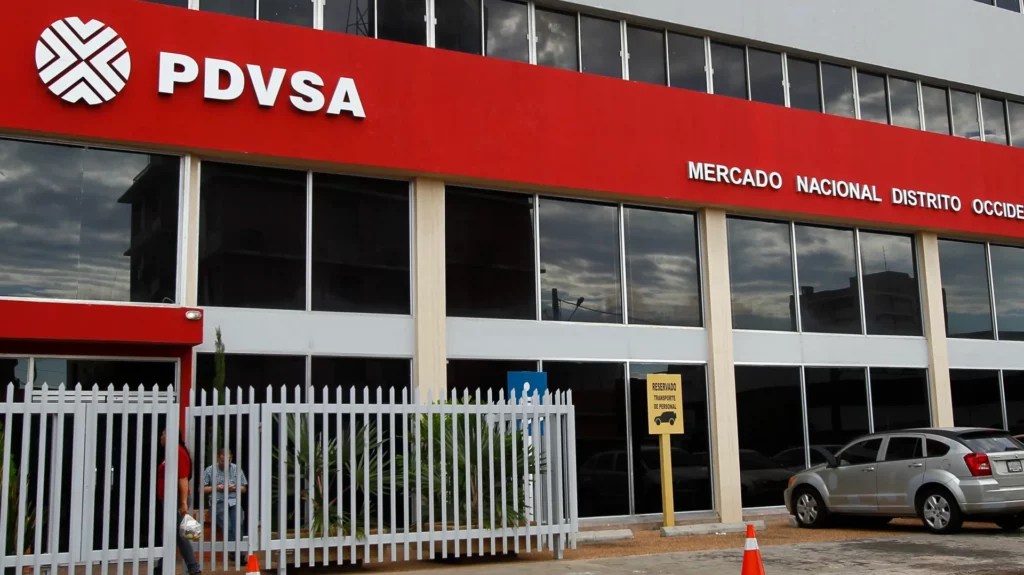Tether Sanctions Busting: Venezuela Oil Company Uses USDT to Get Round US Ban, But Will This Boost Regulation Calls?

PDVSA is increasingly adopting Tether (USDT) for transactions amid renewed U.S. sanctions. | Credit: Jose Bula Urrutia / Eyepix Group/Future Publishing via Getty Images
Key Takeaways
- Venezuela’s state-run oil company, PDVSA, is increasing its use of digital currencies, particularly USDT.
- US sanctions squeeze Venezuela’s oil exports, forcing a shift to crypto.
- While cryptocurrency offers some relief from sanctions, its use in oil sales is uncommon and poses compliance hurdles.
- The United States could see further calls for stablecoin regulations as a result.
Venezuela’s state-run oil company, PDVSA, is planning to expand the use of digital currencies in its crude and fuel exports.
This move comes as the US reimposes oil sanctions on the country, according to three people familiar with the plans. This move could spark further calls for stablecoin regulation in America.
Venezuela Turns to Crypto as US Sanctions Squeeze Oil Sales
Last week, the US Treasury Department announced PDVSA’s clients and suppliers have until May 31 to conclude transactions. The company chose not to renew a general license following insufficient electoral reforms. This decision will complicate Venezuela’s efforts to boost oil production and exports. This is because businesses must now obtain specific US approvals to engage with the country.
Crypto law expert David Lesperance told CCN that whether Venezuela accepting USDT or others using crypto to circumvent sanctions, it should be expected to see bilateral support for countermeasures from the US government.
Since last year, PDVSA has been gradually transitioning its oil sales to USDT. The reinstatement of oil sanctions is accelerating this shift as a strategy to lessen the risk of sales proceeds being frozen in foreign bank accounts due to these sanctions, according to sources.
Venezuelan Oil Minister Pedro Tellechea said that they use various currencies based on contract stipulations, noting that some contracts may favor digital currencies as the preferred payment method.
Pushing Pre-Paid USDT Contracts Despite USD Dominance
The US dollar remains the preferred currency for global oil market transactions, with cryptocurrency payments still being relatively uncommon, even as they begin to emerge in some regions. Last year, PDVSA was embroiled in a corruption scandal when approximately $21 billion in receivables from oil exports went unaccounted for over recent years, partly due to previous dealings in various cryptocurrencies.
Under the leadership of Tellechea the nation’s oil exports have risen. Supported by US licenses permitting sales, exports surged to about 900,000 barrels per day in March, its highest level in four years.
By the conclusion of the first quarter, PDVSA had transitioned many of its spot oil deals, excluding swaps, to a contractual model that requires prepayment of half the value of each cargo in USDT.
PDVSA now requires all new customers seeking to engage in oil transactions to maintain cryptocurrency in a digital wallet. This requirement has even been applied to some older contracts that do not specifically mandate the use of USDT, according to one source.
Crypto Payments Stall Venezuela’s Oil Sales
In October, following the issuance of a six-month license by Washington that allowed trading houses and former PDVSA customers to restart dealings with Venezuela, many utilized intermediaries to comply with the digital transaction demands. One trader explained that USDT transactions, as required by PDVSA, typically do not meet the compliance standards of traders. This, therefore, neccessitates the use of intermediaries . Since the imposition of secondary sanctions by the US in 2020, which affected its relationships with major trading partners, PDVSA has increasingly depended on intermediaries, particularly for its oil sales to China.
Increasing reliance on intermediaries for transactions could allow PDVSA to circumvent sanctions. However, it also means that a smaller portion of oil proceeds will reach the company. Last week, Tellechea mentioned Venezuela plans to continue signing contracts and expanding crude and gas projects during the 45-day wind down period set by the US. After that, they will encourage potential clients to seek specific licenses.
Oil analysts anticipate Venezuela’s oil output, exports, and revenue may soon reach their limits , even if Washington quickly grants individual authorizations. However, Tellechea dismissed this notion. He asserted PDVSA has “a big strength in trading”. He also poitned out it was commercially prepared to handle the reimplementation of US sanctions.
